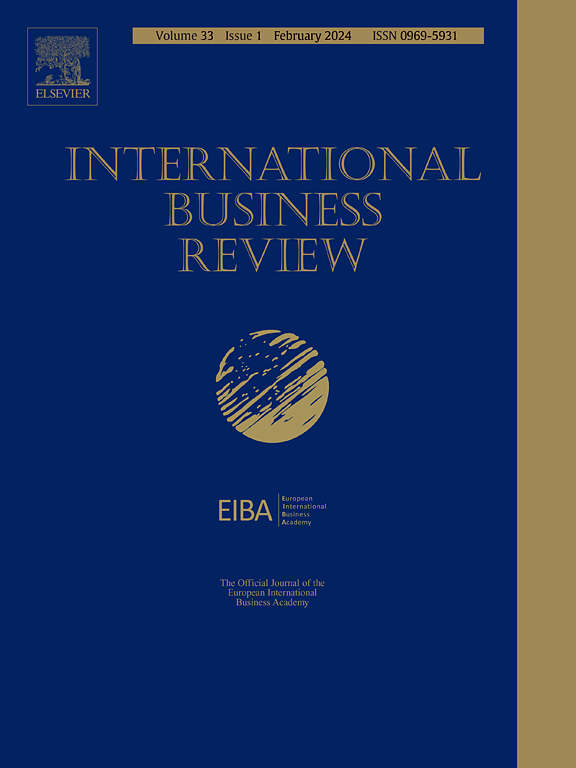外派期间合作伙伴地理分离的后果:信任和虚拟沟通的调节作用
IF 6.1
1区 管理学
Q1 BUSINESS
引用次数: 0
摘要
对于许多外派人员来说,与合作伙伴的地理位置分离是一个现实,但人们对其对外派人员及其合作伙伴的影响知之甚少。根据依恋理论,我们建立了一个理论模型,将地理分离的影响与外派人员的遣返意图联系起来,并通过增加外派人员及其伴侣的抑郁症状最终遣返并与他们的伴侣团聚。此外,我们提出,外派人员与合作伙伴之间的二元信任和虚拟交流频率可以缓冲地理分离对抑郁症状和遣返的负面影响。对132名外派人员及其伴侣的多波二元调查结果为我们的理论模型提供了强有力的支持。对20名外派人员及其合作伙伴的后续访谈研究的结果为分离、抑郁和遣返的潜在原因和机制提供了更多的见解。我们讨论了理论和实践的重要意义。本文章由计算机程序翻译,如有差异,请以英文原文为准。
Consequences of geographic separation of partners during expatriation: The moderating effects of trust and virtual communication
Geographic separation from the partner is a reality for many expatriates, yet little is known about its effects on expatriates and their partners. Drawing on attachment theory, we develop a theoretical model linking the effects of geographic separation to expatriates’ repatriation intentions and eventual repatriation and reunion with their partners via an increase in depressive symptoms of both expatriates and their partners. Moreover, we propose that dyadic trust and the frequency of virtual communication between expatriates and partners buffer the negative effects of geographic separation on the depressive symptoms and repatriation. Results from a multi-wave dyadic survey of 132 expatriates and their partners provide strong support for our theoretical model. Findings from a follow-up interview study with 20 expatriates and partners offer additional insights into the underlying reasons and mechanisms of separation, depression and repatriation. We discuss important implications for theory and practice.
求助全文
通过发布文献求助,成功后即可免费获取论文全文。
去求助
来源期刊

International Business Review
BUSINESS-
CiteScore
14.10
自引率
6.90%
发文量
95
审稿时长
62 days
期刊介绍:
The International Business Review (IBR) stands as a premier international journal within the realm of international business and proudly serves as the official publication of the European International Business Academy (EIBA). This esteemed journal publishes original and insightful papers addressing the theory and practice of international business, encompassing a broad spectrum of topics such as firms' internationalization strategies, cross-border management of operations, and comparative studies of business environments across different countries. In essence, IBR is dedicated to disseminating research that informs the international operations of firms, whether they are SMEs or large MNEs, and guides the actions of policymakers in both home and host countries. The journal warmly welcomes conceptual papers, empirical studies, and review articles, fostering contributions from various disciplines including strategy, finance, management, marketing, economics, HRM, and organizational studies. IBR embraces methodological diversity, with equal openness to papers utilizing quantitative, qualitative, or mixed-method approaches.
 求助内容:
求助内容: 应助结果提醒方式:
应助结果提醒方式:


